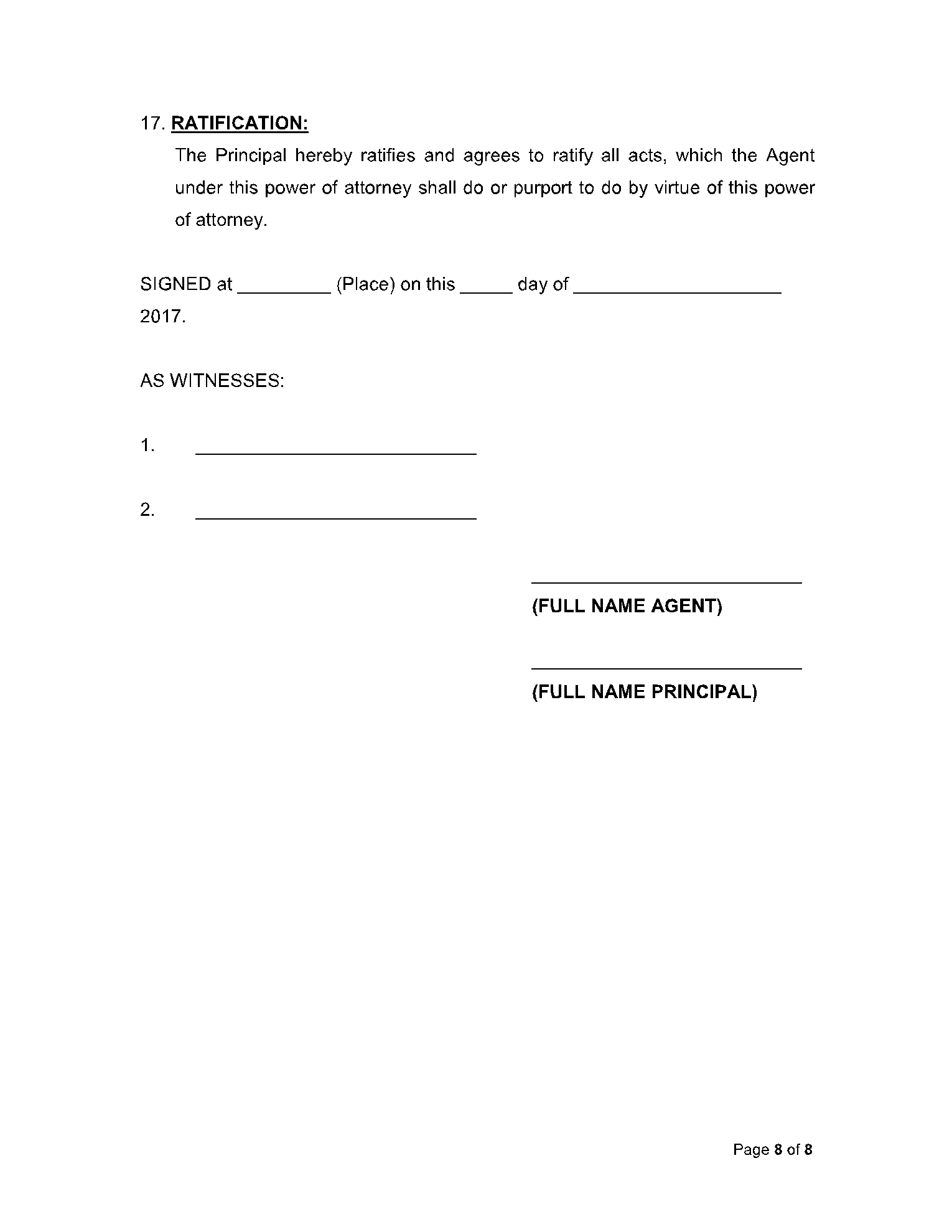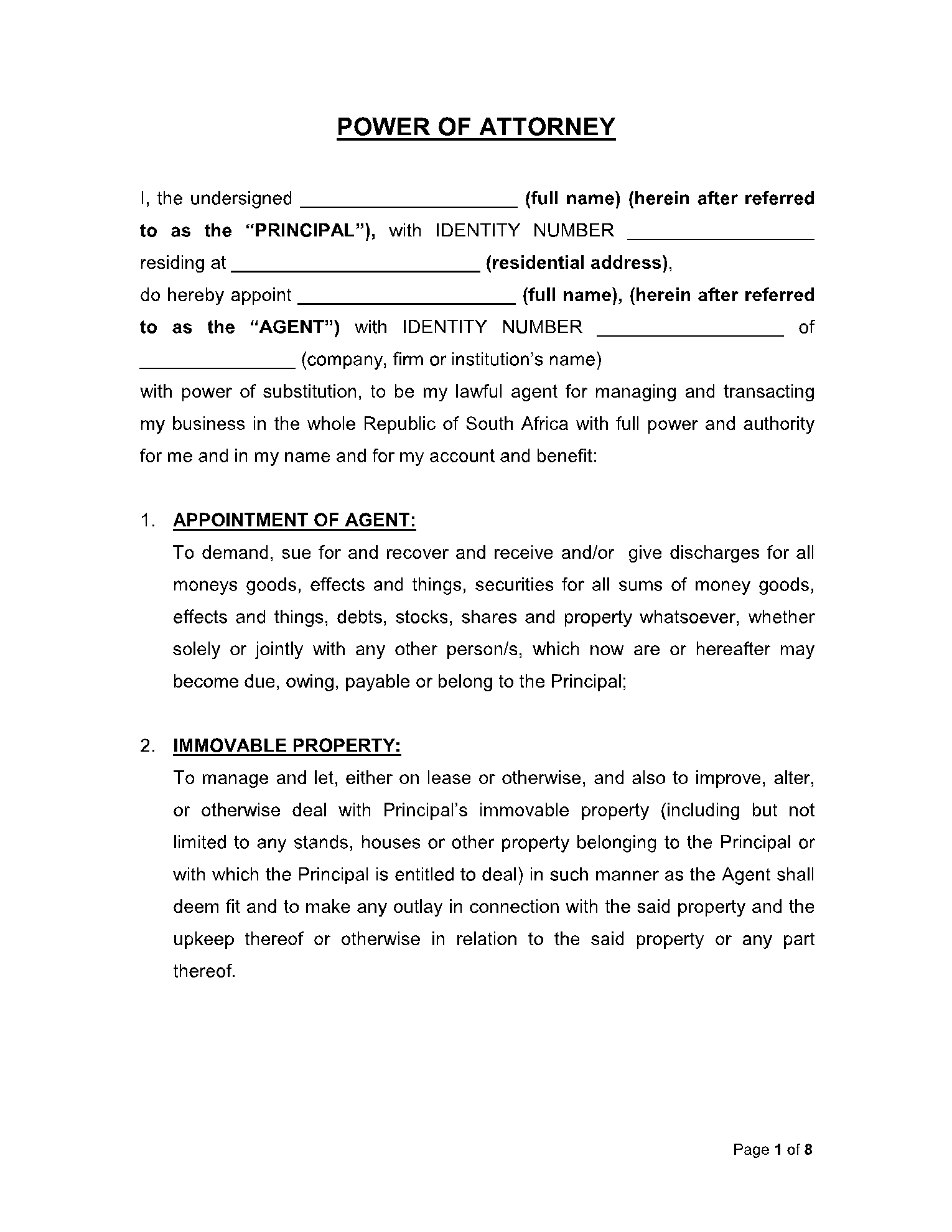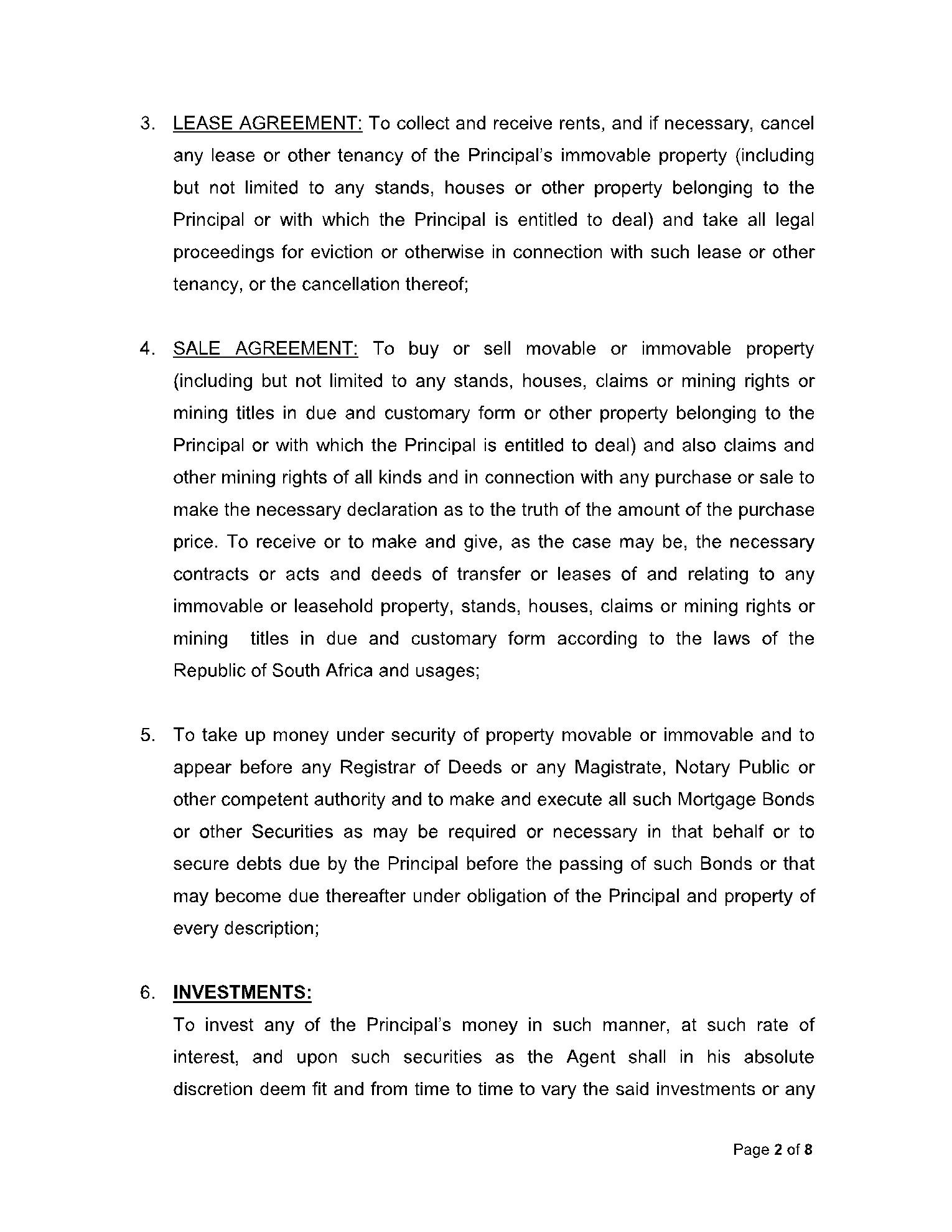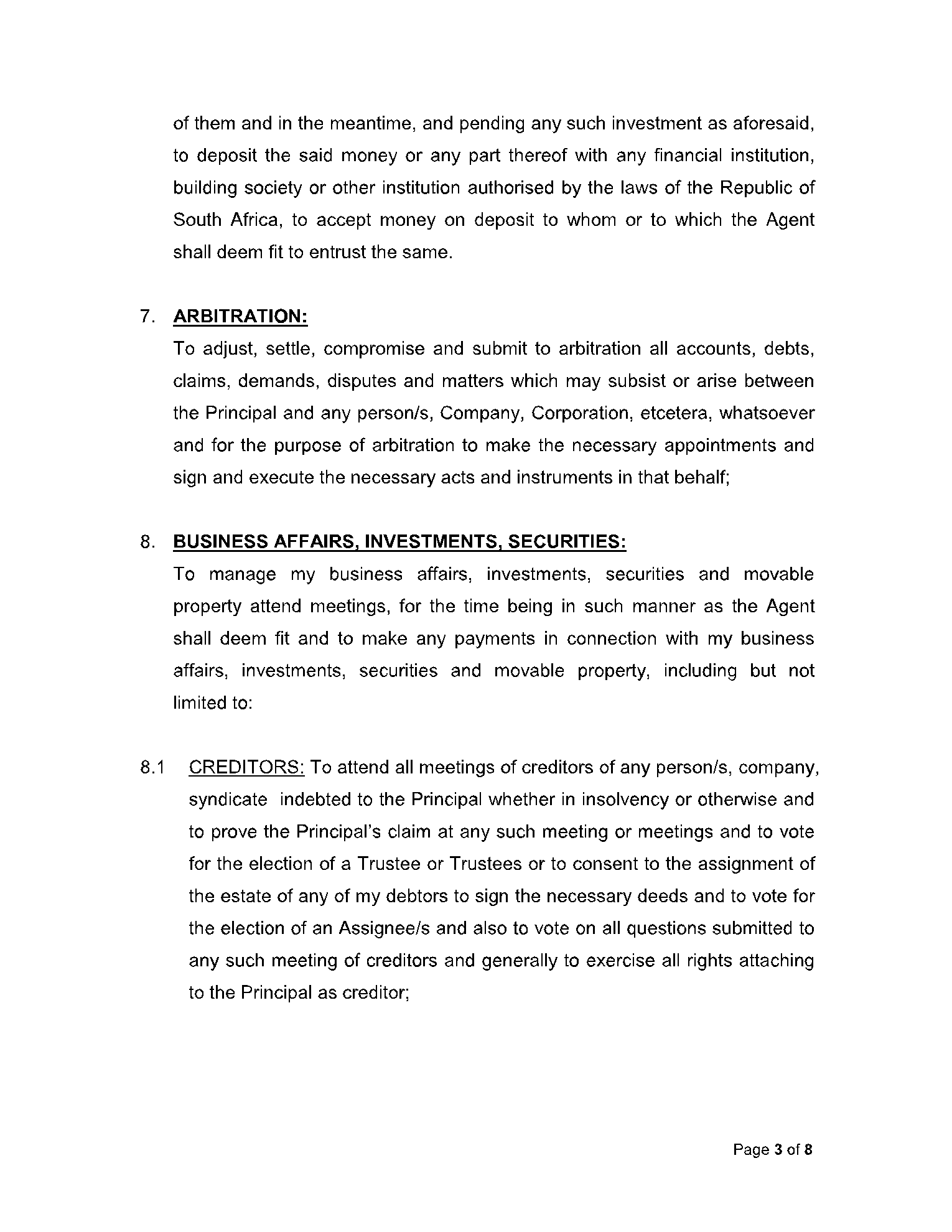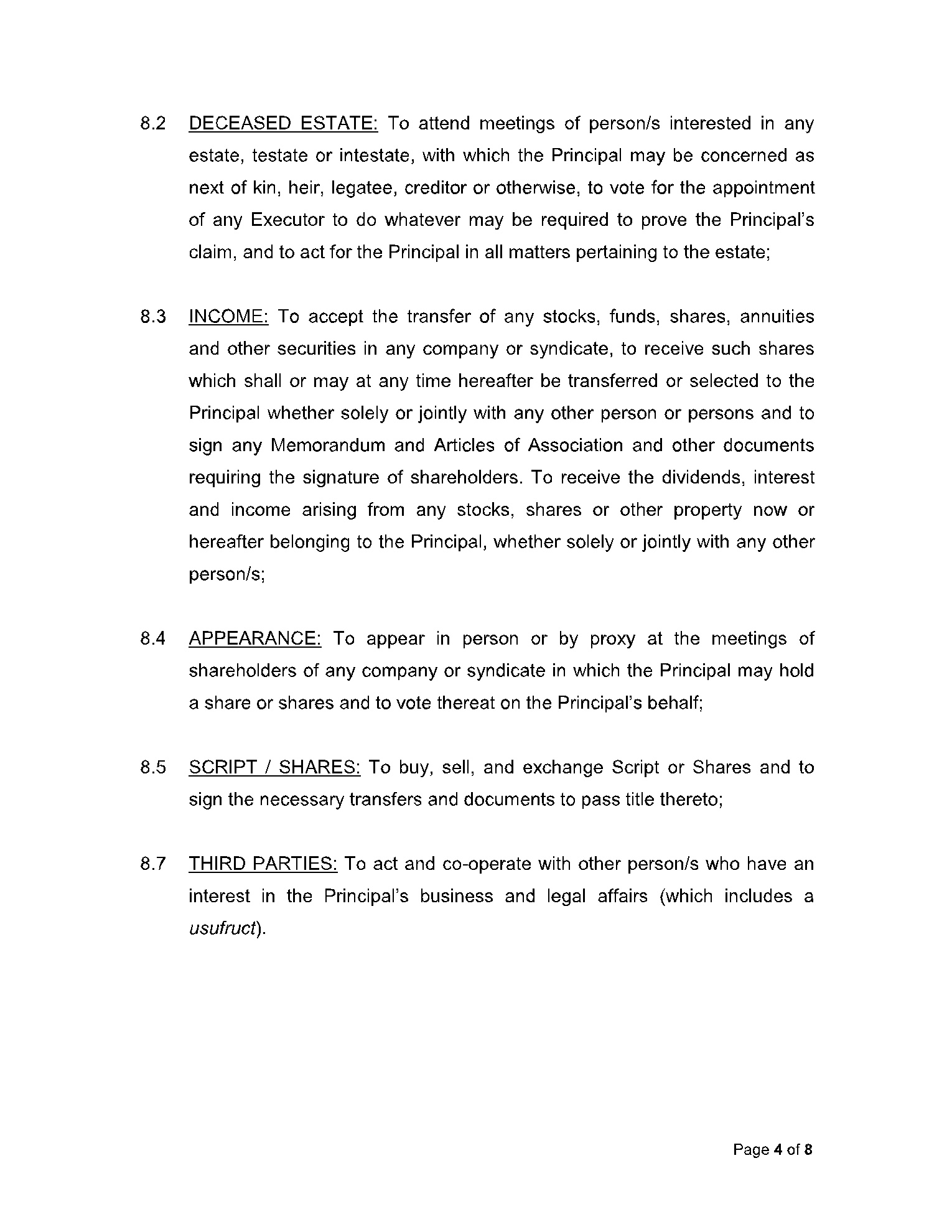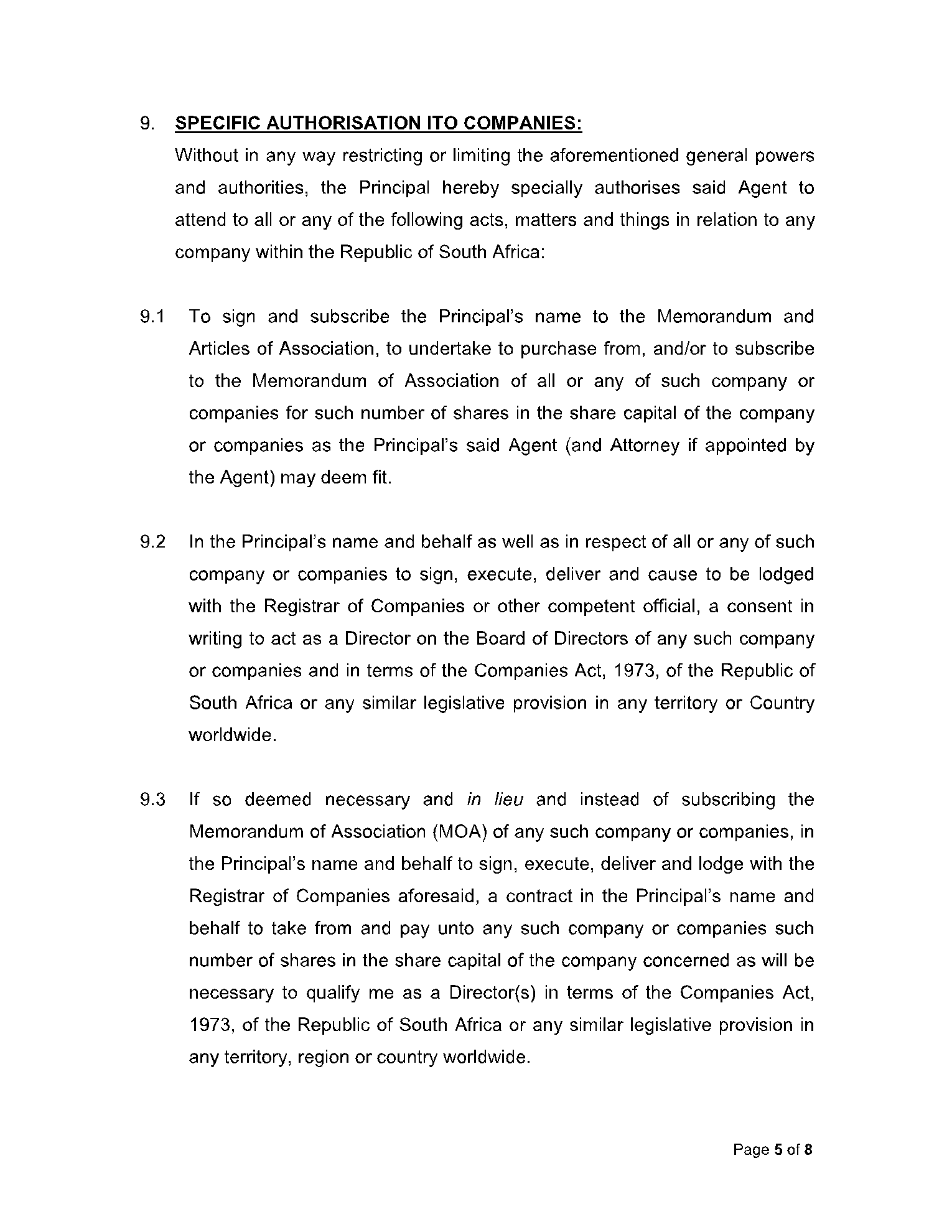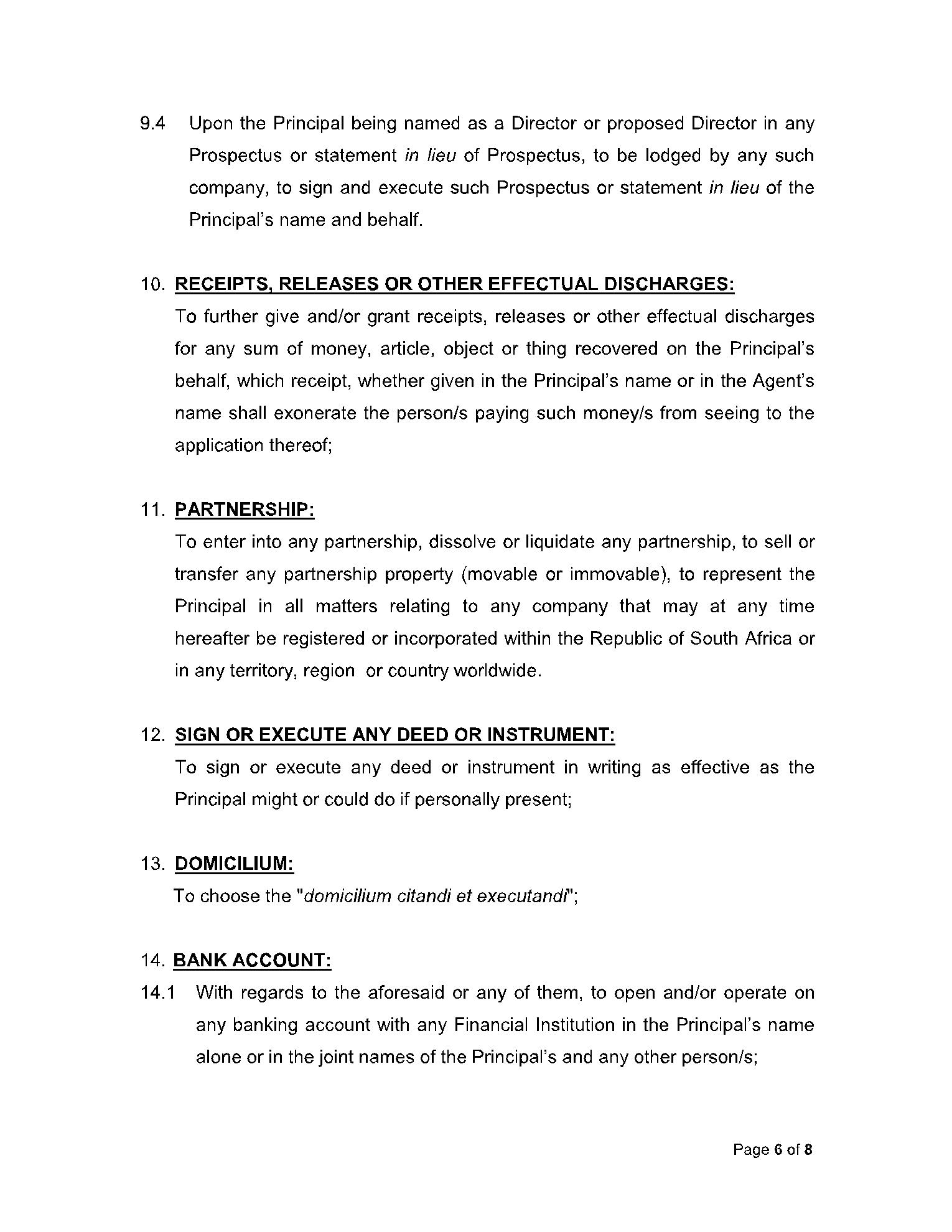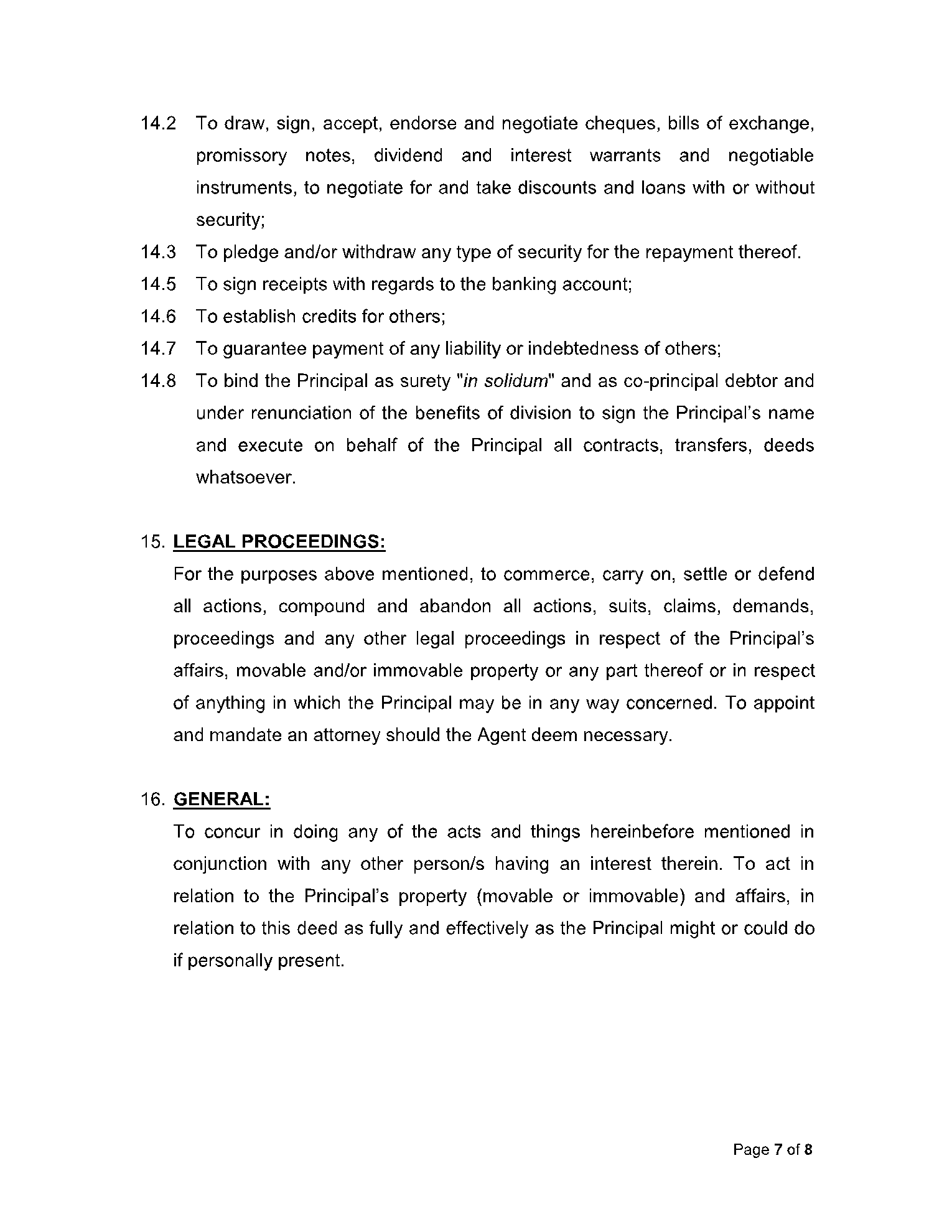For years, wills have been the most respected legal document by seniors and every adult who intends leaving properties behind for their dependents. This is because it defines who takes what when they are gone.
How about who handles your financial and legal matters when you are alive but absent? Here’s where a general power of attorney comes in. To find out more about this unique document, key considerations to make while drafting one and how you can get one, read further.
What’s included in a general power of attorney:
-
- Details of principal
- Details of agent
- Date of execution
- Powers granted to and responsibilities of the agent or attorney-in-fact
- Notarized
What is General Power of Attorney?
A general power of attorney, as we know it, is a legal document that gives an individual the legal permission and powers to act on another’s behalf and in his/her name in all affairs. This law is governed by the contents of section 10 of the Power Attorney Act 1971.
The one who nominates another to act on his/her behalf is known as the principal while the nominated fellow is described as the attorney-in-fact or an agent. It is called general because this power of attorney gives the agent the powers to act on behalf of the principal in managing all their legal and financial matters.
This may include the buying and selling of different assets for the principals, handling their tax-related matters, receiving their benefits and even spending money on their behalf.
A general power of attorney is only effective as long as the principal is alive. This power of attorney no longer remains valid after the demise of the principal. On the other hand, a will becomes operational only after the demise of the principal.
Unless explicitly described as a general durable power of attorney, with the keyword being ‘durable’, a general power of attorney becomes invalid as soon as the principal becomes incapacitated mentally or physically, and is unable to make certain decisions for him/herself.
Try our general power of attorney template!
Our general power of attorney template is the perfect one for those seeking to DIY a general POA from scratch. It’s easy to modify and its legal language is approved by lawyers. Most importantly, it’s free!
Click the buttons below to use this template!
General POA vs Durable POA
This is the major difference between these two types of power of attorney:
Unlike a durable power of attorney (poa), a general poa becomes ineffective as soon as the principal becomes incapacitated or mentally unstable to make decisions for theirselves. In contrast, a durable poa still remains valid even when the principals can no longer make the right judgement on certain decisions due to illnesses like dementia, or any other health issue that affects their sense of reasoning.
How Does A General Power of Attorney Work?
There are different laws regarding a general power of attorney depending on the state the principal resides in. In order for the general power of attorney to be valid, it must satisfy the dictates of the Acts and Regulations of the state where it is to be used.
If the principals wish to use their general power of attorney in different states, there are two options open. One is that they have separate documents for different states. The other is that they go through a process to make the power of attorney operational in all states they reside in or choose to operate.
In general, a general power of attorney should take effect from the day it is signed and executed under the provisions of the Powers of Attorney Act and associated Regulations.
However, in some cases, it is not. A general power of attorney does not become effective immediately if specified in the general power of attorney form that it is not valid till a particular date.
Key Considerations
There are several considerations a principal should make before drafting a general power of attorney form. One such is who your agent would be.
The principals should appoint only that individual, or several individuals who they feel comfortable with and trust will represent their best interest. This agent must be over the age of 18. In other words, a principal cannot appoint a next of kin, son or daughter who is still below the legal age in most states.
Since an agent has the powers to mismanage the finances of the principal and put the principal’s business in jeopardy, care must be taken in selecting this attorney-in-fact. However, the principal can choose to sack his/her agent anytime deemed fit. Perhaps, most importantly, there is no need to give any legal reasons to do so.
Principals also have the power to limit the power of their agents to checkmate their excesses. Take, for example, the principals can limit the agents to handling their real estate transactions only when they are out of town or the country. The principal can as well stipulate in the power of attorney document that the agent only represents him/her in different capacities within a time interval.
How to Get A General Power of Attorney?
There are a number of things a principal must do for his/her power of attorney to be considered valid. Here is a step-by-step guide on how to go about getting a general power of attorney.
Step 1
Obtain a general power of attorney form. You can get one from the state’s local library or download a free general power of attorney form online from a reliable website like CocoSign. The general power of attorney samples available on CocoSign platform are customized to reflect the peculiarities of the state where you reside or have business transactions to make.
This is a more cost-effective option than giving away bundles of cash hiring an attorney to help you draft a general power of attorney form. The general power of attorney form you download online is just as valid as one drafted by a pricey attorney.
Step 2
Choose an agent. This individual according to the content of the general power of attorney document is allowed to represent the principal on all legal and financial matters. Henx, the powers of the agent should be clearly discussed.
In some states, you are allowed to appoint a secondary successor or an alternative agent who stands for the agent in their absence. Note that should the agents not be in agreement, a general power of attorney form does not allow agents to co-decide on matters. It is therefore recommended you choose someone from your will that has your best interests at heart.
Step 3
Depending on the state, a general power of attorney form allows the attorney-in-fact represent the principal only on certain issues like taxes, retirement plans, benefits, stocks and bonds, real property, personal property, insurance and annuities, claims and litigations, trusts, and gifts.
Step 4
In addition to the powers listed above, a principal can bestow upon their agent certain responsibilities or roles they want their agent to play. A principal may add responsibilities like nomination of a guardian for a minor, or creating or changing rights of survivorship.
Before finalizing the contents of the document, a principal can also include a clause containing any special instructions they feel is necessary.
Step 5
Finally, the principal and the agent, if applicable, is then expected to append signatures on the power of attorney document according to the laws of the state. However, these documents must be signed in the presence of the notary public or a number of witnesses.
In some states, the agent is also required by law to sign another document attached to the power of attorney form. This form is titled “Agent Certification”. This document profiles the rules the agent must obey in accordance with the procedures commanded by the laws of the state.
Try our general power of attorney template!
Our general power of attorney template is the perfect one for those seeking to DIY a general POA from scratch. It’s easy to modify and its legal language is approved by lawyers. Most importantly, it’s free!
Click the buttons below to use this template!
Conclusion:
A general power of attorney is a very delicate document and important too. Like a will or trust, you have to make certain considerations before fully drafting one. If you don’t have an idea how to get started or are clueless about the laws of your state in relation to a general power of attorney, you can download any of Cocosign general power of attorney form pdf or template and fill out.
DOCUMENT PREVIEW
. My attorney-in-fact has the power to make any payments on any accounts I may owe and to hold, collect and request any sums that may be due, owing or payable to me or in which I may hereinafter acquire an interest, in whatever form, whether liquidated or un-liquidated, to have, use, and take all lawful means in my name for the collection and recovery thereof, and to adjust, sell, compromise, and agree for the same and to execute and deliver for me, on my behalf, and in my name, all endorsements, releases, receipts, or other sufficient discharges for the same;
_____ - Power to Acquire, Lease and Sell Personal Property. To acquire, purchase, exchange, lease, grant options to sell, and sell and convey personal property, or any interests therein, on such terms and conditions, including credit arrangements, as my attorney-in-fact shall deem proper; to execute, acknowledge and deliver, under seal or otherwise, any and all assignments, transfers, titles, papers, documents or instruments which my attorney-in-fact shall deem necessary in connection therewith; to purchase, sell or otherwise dispose of, assign, transfer and convey shares of stock, bonds, securities and other personal property now or hereafter belonging to me, whether standing in my name or otherwise, and wherever situated;
_____ - Power to Acquire, Lease and Sell Real Property. To acquire, purchase, exchange, lease, grant options to sell, and sell and convey real property, or any interests therein, on such terms and conditions, including credit arrangements, as my attorney-in-fact shall deem proper; to execute, acknowledge and deliver, under seal or otherwise, any and all assignments, transfers, deeds, papers, documents or instruments which my attorney-in-fact shall deem necessary in connection therewith;
_____ - Management Powers. To maintain, repair, improve, invest, manage, insure, rent, lease, encumber, and in any manner deal with any real or personal property, tangible or intangible, or any interests therein, that I now own or may hereafter acquire, in my name and for my benefit, upon such terms and conditions as my attorney-in-fact shall deem proper;
_____ - Banking Powers. To open and close accounts, make, receive, and endorse checks and drafts, deposit and withdraw funds, acquire and redeem certificates of deposit, in banks, savings and loan associations, and other institutions, execute or release such deeds of trust or other security agreements as may be necessary or proper in the exercise of the rights and powers herein granted;
_____ - Motor Vehicles. To apply for a Certificate of Title upon, and endorse and transfer title thereto, for any automobile, truck, pickup truck, van, motorcycle, or other motor vehicle, and to represent in such transfer or assignment that the title to said motor vehicle is free and clear of all liens and encumbrances except those specifically set forth in such transfer or assignment;
_____ - Tax Powers. To act without limitation on my behalf with regard to federal income taxes (Forms 1040, 1040EZ, 1040X, etc.), state and local income taxes, estate, gift (Form 709) and other tax returns of all sorts, whether federal or state and local, including where appropriate joint returns, FICA returns, payroll tax returns, claims for refunds, requests for extensions of time to file returns or pay taxes, extensions and waivers of applicable periods of limitation, protests and petitions to administrative agencies or courts, including the tax court, regarding tax matters, and any and all other tax related documents, including but not limited to consents and agreements under Section 2032A of the Internal Revenue Code or any successor section thereto and consents to split gifts and closing agreements, for all tax periods from 1980 through 2050, and for all jurisdictions; to complete Internal Revenue Service Form 2848, Power of Attorney and Declaration of Representative (or other prescribed form) on my behalf as well as to perform all other functions contemplated by that form whether they are required or merely permissible; to consent to any gift and to utilize any gift-splitting provisions or other tax election; and to prepare, sign, and file any claims for refund of any tax; to post bonds, receive confidential information and contest deficiencies determined by the Internal Revenue Service or any state or local taxing authority; to exercise any and all elections that I may have under federal, state or local tax laws including without limitation the allocation of any generation-skipping tax exemption to which I may be entitled; to the extent that I may have omitted some power or discretion, some tax period, some form or some jurisdiction, I hereby grant to my attorney-in-fact the power to amend the Internal Revenue Service form power of attorney (presently Form 2848 or Form 2848-D) in my name;
_____ - Safe-Deposit Boxes. To have access at any time or times to any safe-deposit box rented by me or to which I may have access, where so ever located, including drilling, if necessary, and to remove all or any part of the contents thereof, and to surrender or relinquish said safe-deposit box; and any institution in which any such safe-deposit box may be located shall not incur any liability to me or my estate as a result of permitting my attorney-in-fact to exercise this power;
_____ - Gift Making Powers. To make gifts, grants, or other transfers (including the forgiveness of indebtedness and the completion of any charitable pledges I may have made) without consideration, either outright or in trust to such person(s) (including my attorney-in-fact hereunder) or organizations as my attorney-in-fact shall select, including, without limitation, the following actions: (a) transfer by gift in advancement of a bequest or devise to beneficiaries under my will or in the absence of a will to my spouse and descendants in whatever degree; and (b) release of any life interest, or waiver, renunciation, disclaimer, or declination of any gift to me by will, deed, or trust;
_____ - Lending and Borrowing. To make loans in my name; to borrow money in my name, individually or jointly with others; to give promissory notes or other obligations therefor; and to deposit or mortgage as collateral or for security for the payment thereof any or all of my securities, real estate, personal property, or other property of whatever nature and wherever situated, held by me personally or in trust for my benefit;
_____ - Contracts. To enter into contracts of whatever nature or kind in my name;
_____ - Health Care. To take any and all steps necessary to arrange for my admission to any type of health care facility, including, without limitation, a hospital, rehabilitation facility, skilled nursing facility, or hospice, and to authorize the release of my medical records in the discretion of my attorney-in-fact;
_____ - HIPAA. To have the power and authority as my personal representative for all purposes of the Health Insurance Portability and Accountability Act of 1996 (Pub. L. No. 104-191);
_____ - Power to Hire and Pay for Services. To retain such accountants, attorneys, social workers, consultants, clerks, employees, workers, or other persons as my agent shall deem appropriate in connection with the management of my property and affairs and to make payments from my assets for the fees of such persons so employed;
